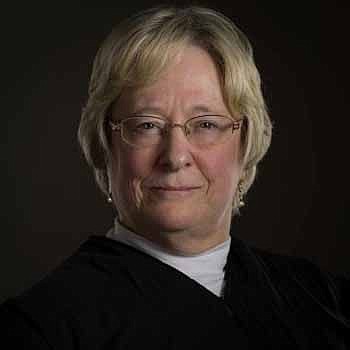
Little more than a week before businesses were slated to get hit with increased workers’ compensation insurance rates, a Leon County circuit judge blocked the hike Wednesday because of violations of Florida’s Sunshine Law.
An organization that files workers’ compensation rate proposals for insurers said it would appeal.
The 73-page ruling by Leon County Circuit Judge Karen Gievers dealt with a 14.5 percent rate increase scheduled to take effect Thursday.
The planned increase, which has drawn heavy attention from business and legal groups, stems from Florida Supreme Court rulings this year that found parts of the state’s workers’ compensation insurance laws unconstitutional.
Gievers ruled, in part, that the National Council on Compensation Insurance — the organization that files rate proposals for the industry — did not comply with legal requirements about holding public meetings during its deliberations on the increase.
Also, she wrote that the organization, commonly known as NCCI, held improper closed-door meetings with staff members of the Florida Office of Insurance Regulation.
“Far from being meetings in the Sunshine required by law, the meetings between the OIR staff and NCCI staff were designed to, and had the effect of shutting the public out of meaningful participation in the rate making process,” she wrote.
NCCI released a statement Wednesday afternoon saying it was “very disappointed” in the ruling and vowed to challenge it.
“We continue to believe that NCCI and the Florida OIR have fully complied with the law,” the statement said.
James F. Fee Jr., a Miami attorney who represents injured workers, filed the lawsuit Aug. 10, as insurance regulators were considering a proposal by NCCI to raise rates by 19.6 percent.
The Office of Insurance Regulation later required the proposal be scaled back and the 14.5 percent hike was approved in October.
The plan to increase rates largely resulted from a Florida Supreme Court ruling in April that said the state’s strict limits on attorneys’ fees in workers’ compensation cases were unconstitutional.
Another Supreme Court ruling in a case involving an injured St. Petersburg firefighter also contributed to the increase.
Gievers focused heavily on part of state law that requires open meetings when rating organizations, such as NCCI, hold committee meetings to discuss workers’ compensation rate changes.
She wrote that two NCCI committees dealt with rate filings in the past but the organization contended it had delegated to an actuary the work of preparing what are known as “off-cycle” filings, such as the filings after this year’s Supreme Court rulings.
But Gievers said a series of meetings occurred during the development of the rate proposal and the public was not allowed to take part.
She wrote the “undisputed evidence established that none of the meetings at NCCI were open to the public, established that no minutes were kept and established that there was no notice to the public in advance of the meetings. Further, the undisputed evidence established that NCCI did not provide plaintiff Fee with all of the rate-related information he requested on more than one occasion.”
The ruling could add fuel to an expected battle about the workers’ compensation insurance system during the 2017 legislative session.